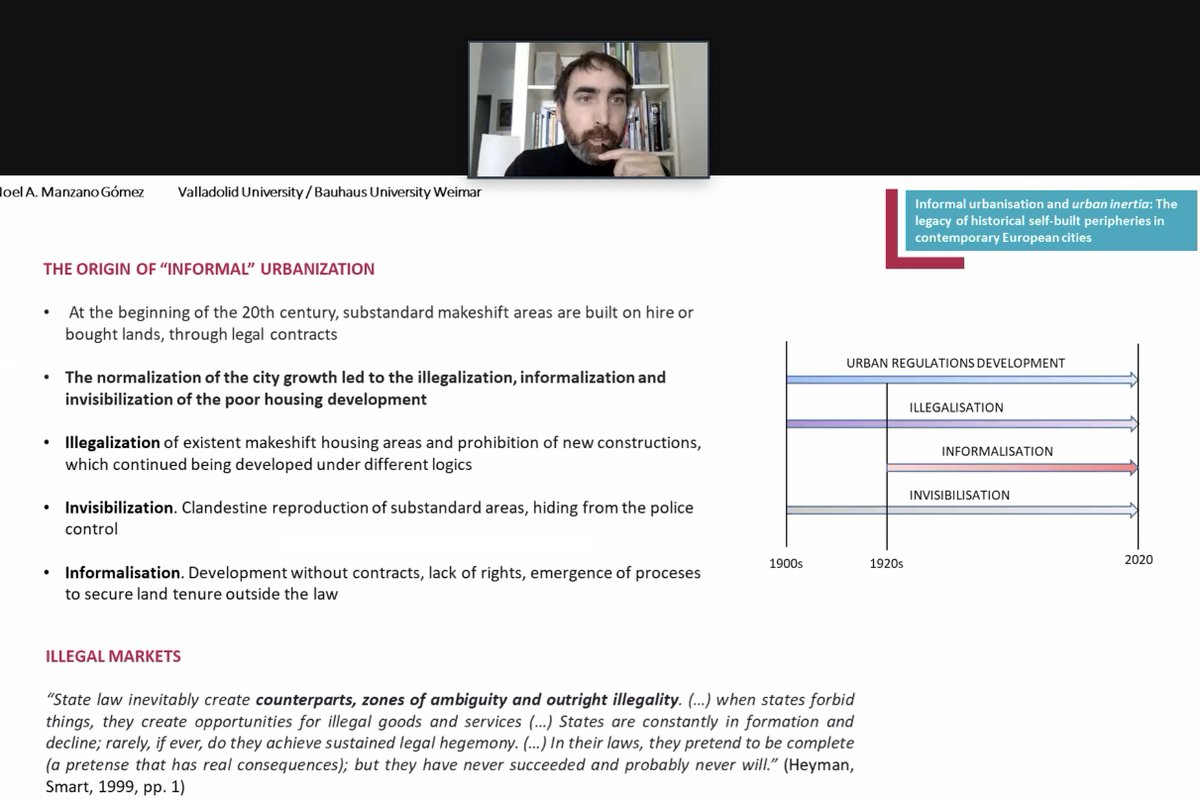
Elina Trubina (@Amaurotum) comments on Grabalov's paper:
I want to think about how urban spaces are being produced or marked by death, and I think your work here does that.
I want to think about how urban spaces are being produced or marked by death, and I think your work here does that.
Trubina:
People's reactions to death need more time elaboration and more participant observation would help that. On the other hand, there is value in doing these spontaneous interviews you speak of here
People's reactions to death need more time elaboration and more participant observation would help that. On the other hand, there is value in doing these spontaneous interviews you speak of here
Trubina:
While desecularization is present, it still stands that millions of people still visit loved one's graves according to the Christian calendar, what are your thoughts on this?
While desecularization is present, it still stands that millions of people still visit loved one's graves according to the Christian calendar, what are your thoughts on this?
Grabalov:
I think I focus a bit less on the kinds of rituals that people engage in, and I'm more interested in what is actually occurring with people in the cemeteries
I think I focus a bit less on the kinds of rituals that people engage in, and I'm more interested in what is actually occurring with people in the cemeteries
Grabalov:
Cemeteries, which arguably have a more emotional attachment than most urban spaces, become a very interesting site
Cemeteries, which arguably have a more emotional attachment than most urban spaces, become a very interesting site
Trubina:
A vignette: friend of mine in Berlin is building houses in a cemetery, selling them with the slogan: "it's always quiet here". This raises many issues on issues of space, gentrification, usage of cemeteries. What are your thoughts on ethical use of cemeteries?
A vignette: friend of mine in Berlin is building houses in a cemetery, selling them with the slogan: "it's always quiet here". This raises many issues on issues of space, gentrification, usage of cemeteries. What are your thoughts on ethical use of cemeteries?
Grabalov:
When pressure on green spaces increases, cemeteries will change the ways they figure into the urban. Indeed, some cities like Moscow, which have quotas on built and green space, sometimes include cemeteries as green spaces
When pressure on green spaces increases, cemeteries will change the ways they figure into the urban. Indeed, some cities like Moscow, which have quotas on built and green space, sometimes include cemeteries as green spaces
@threadreaderapp unroll
• • •
Missing some Tweet in this thread? You can try to
force a refresh

































